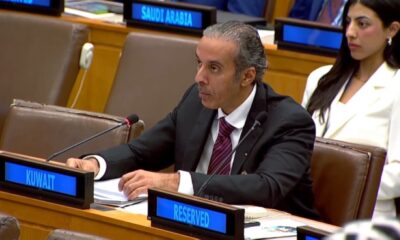KUWAIT CITY, Sept 16: The Misdemeanor Court acquitted a Kuwaiti businesswoman of renting residential units to bachelors in Sabah Al-Ahmad Coastal Area, a private residential area. This was based on the provisions of Decree-Law No. 125/1992 prohibiting non-family housing. The case is based on the report of a Kuwait Municipality inspector in Ahmadi Governorate, responding to complaints on the supposed presence of bachelors in several residential plots, including the plot owned by the defendant. The inspector indicated that he issued eviction notices to the property owners, but he did not receive any response. He then filed a report against the businesswoman, including the property details and the type of violation. Attorney Enaam Haidar, who appeared in court on behalf of the businesswoman, argued that the accusation is false and groundless.
She asserted that the documents have no conclusive evidence proving that her client rented the property to bachelors. She indicated that the incident was fabricated and based on a complaint that was not supported by legal arguments or material evidence. She added that the Decree-Law explicitly states in its first article that any lease contract proven to have violated the law is void, making legal liability dependent on a valid and enforceable lease contract, which is not present in the case. The court accepted the arguments of Haider, finding the accusation “shaky and baseless,” and that the case documents lack conclusive evidence of the defendant’s alleged violation. Consequently, the businesswoman was acquitted of all the charges against her. Meanwhile, the Criminal Court acquitted a citizen of forging bank documents and laundering money estimated at KD54,000.
The court made its decision based on the arguments of Attorney Hussein Al-Asfour, lawyer of the accused, who asserted that the investigations conducted by the Criminal Investigations Department at the Interior Ministry are invalid due to lack of seriousness and the unreasonable nature of the incident, in addition to the absence of the elements of the two crimes attributed to his client. The Public Prosecution charged the defendant and other unidentified individuals with forming an organized criminal group and laundering money estimated at KD 54,000, which they allegedly obtained through forgery and the statement of the victim’s account at a local bank. The court charged the defendants with complicity in forging private documents and KNET company records, as well as using the victim’s bank card data in illegal online transfers. Also, the Court of Cassation upheld the ruling of the Court of Appeals, which sentenced a Ministry of Interior police officer with the rank of sergeant to five years in prison with hard labor and fined him KD1,000 for bribery. He was convicted of accepting bribe and fabricating a liquor trafficking case against a number of Asians with the intent of deporting them. It was concluded that the defendant accepted a bribe of KD500 from a secret source in exchange for arresting another secret source and framing him for liquor trafficking. However, the detectives set up an entrapment, during which they caught the police officer red-handed while receiving the money.
By Jaber Al-Hamoud
Al-Seyassah/Arab Times Staff

 Politics23 hours ago
Politics23 hours ago
 Politics13 hours ago
Politics13 hours ago
 Latest News20 hours ago
Latest News20 hours ago
 Latest News12 hours ago
Latest News12 hours ago
 Latest News23 hours ago
Latest News23 hours ago
 Latest News14 hours ago
Latest News14 hours ago
 Latest News22 hours ago
Latest News22 hours ago
 Politics4 hours ago
Politics4 hours ago





















